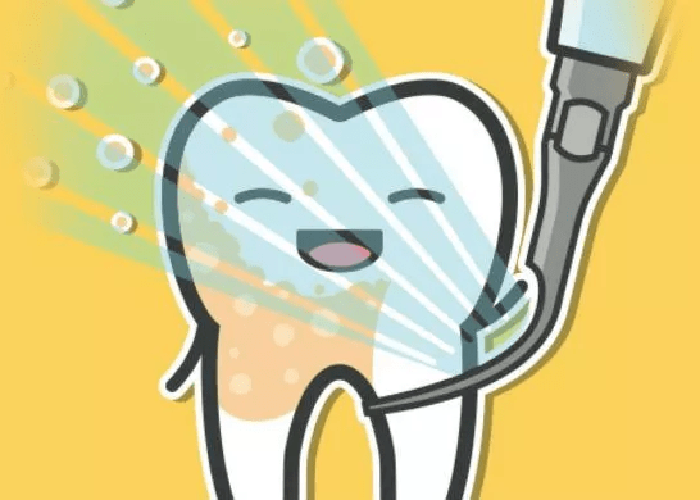What Is a Deep Cleaning?
A deep cleaning (also known as Scaling and Root Planing) is a special two-part procedure that involves (1) removing plaque and tartar from the surface of the teeth and between the gums and teeth and (2) using a scaling instrument to remove plaque and tartar from the surface of the roots of the teeth below the gum line.
When Is a Deep Cleaning Needed?
For patients who have gingivitis (the first stage of gum disease) or a more serious case of gum disease, deep cleaning may be necessary to prevent tooth loss and further damage. It is required when a person has periodontal disease or gum disease.
Gum disease isn’t always accompanied by pain or symptoms, so it can be challenging to know when you need a deep cleaning. Symptoms of periodontal disease or gum disease include:
- Bleeding gums
- Bad taste or breath
- Swollen, tender, or red gums
- Recessed gums, which expose more of the teeth
- Gums that have pulled away from your teeth
- Loose permanent teeth
Your dentist can also diagnose a problem at your regular checkup with a dental probe to measure any pockets that have weakened in the gums. Your dentist may also take x-rays to assess for bone loss. When pockets are too deep to be cleaned with the typical cleaning products and at home and require thorough cleaning, deep cleaning will be required to remove the infection and promote healing.
How Does a Deep Cleaning Work?
Your periodontist may use a hand-held dental scaler to scrape plaque from your teeth above and below your gum line. They may use an ultrasonic tool with a vibrating metal tip and water spray to wash tartar away. Root planning is done with a rotary motion, used to soften rough spots in the roots of your teeth to make it easier to fight off bacteria in the future. Sometimes an antibiotic gel is applied to the teeth during the cleaning to kill germs that are difficult to reach; other times, oral antibiotics or a special antibiotic mouth rinse might be prescribed.
Unlike a regular dental cleaning, this cleaning is performed by section or quadrant of the mouth:
- Top left
- Top right
- Bottom left
- Bottom right
Because the mouth is divided into sections (or quadrants) to perform the procedure, the procedure is typically completed over a minimum of two appointments.
Once it has been performed, periodontal maintenance will often take the place of the standard teeth cleaning at future visits. Periodontal maintenance takes care of not just the surfaces of the teeth, but also for the tooth roots, gums and bone.
What Happens After a Deep Cleaning?
Following a thorough dee[ cleaning, you will be provided specific home care instructions depending on your individual circumstances. A subsequent appointment will then be scheduled in a few weeks or months to allow you to fully recover. We may also suggest that regular cleanings take place over a fixed time period. Preventing new infections and promoting recovery are two aims of this surgical procedure. Progress will be periodically monitored to ensure that your gums have been healing effectively. Most patients respond well to thorough cleaning, and the recurrence of gum tissue is quick with good aftercare. This action will lead to the disappearance of gum pockets over time.
What Benefits Will I Experience After a Deep Cleaning?
Immediately after a deep cleaning you might have some soreness and aching. After your mouth has had some time to heal you should notice some of the following improvements:
- Decreased bleeding when brushing and flossing
- Better breath
- Better looking gums
- Less oral pain
- Stopping bone loss around the teeth
- More secured teeth
- Improved tooth sensitivity
How Much Does a Deep Cleaning Cost?
It will all depend on whether the full procedure or just part of the mouth is treated. Your dentist will most likely charge a fee based on one of two insurance codes, with one covering treatment for one to three teeth, and another for a quadrant of the mouth being treated. Your doctor may also need to charge for medications administered before the treatment to expedite the more favorable effects.
A deep cleaning of your full mouth (all four quadrants) can cost anywhere between $1,200 and $1,600 if you have no dental plan and between $400 and $600 if you have a dental savings plan. Regular prophylaxis cleanings are less costly than deep cleanings – you could pay between $100 and $150 if your insurance doesn’t cover it, or as little as $30 to $50 with a plan.
See Dentist For Life
Looking for an experienced and trusted dentist in Marysville, Ohio? Look no further than Dentist For Life! We provide comprehensive dental care for patients of all ages. We take a wide variety of insurance plans and are currently accepting new patients. You can reach us at (937) 707-1111 or schedule your appointment online here.



